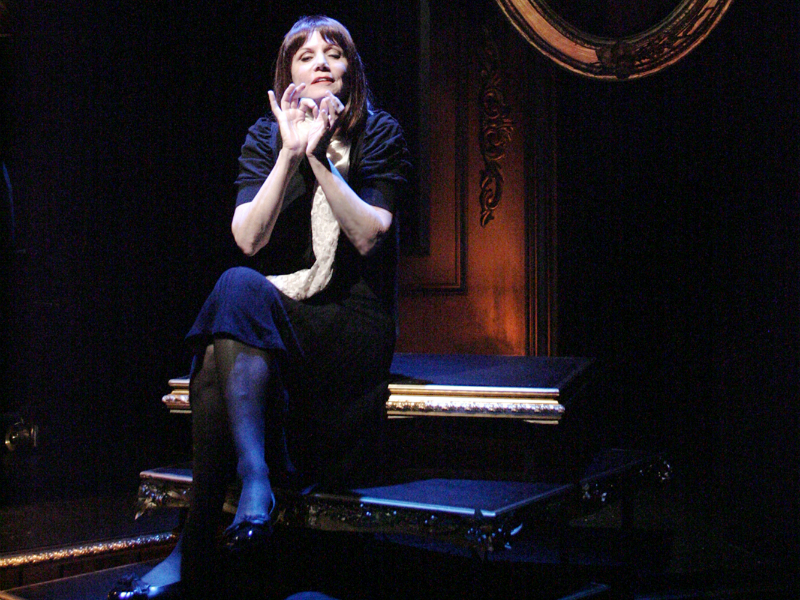Mona Golabek was only six when her mother, Lisa Jura, shared her own talent as a classical pianist with her daughter, occasionally interrupting the lessons to share a memory of her own childhood fleeing Nazi-ruled Vienna, and finding herself in London as part of the Kindertransport.
Golabek, now an internationally acclaimed storyteller and Grammy nominated concert pianist, plays her mother and more than a half-dozen other characters, while performing the music of composers Bach, Beethoven, Chopin and Debussy in The Pianist of Willesden Lane.
The production is based on the book, The Children of Willesden Lane: Beyond the Kindertransport: A Memoir of Music, Love, and Survival, by Golabek and Lee Cohen. It is now in its 24th printing.
The story takes place in two different cities: The first part follows her mother’s early years as a child prodigy in Vienna, from where she was rescued by the Kindertransport program. The second half takes place in London during the Blitz and shows how, with the help of the heroic British people, Jura was able to keep playing music against all odds. Willesden Lane was where she and other refugee children were settled.
This one-woman show, which debuted in Los Angeles in 2012, has received rave reviews and sold-out runs across America and Europe, most recently in Montreal. She received best actress nominations from the New York Drama Critics Circle and Los Angeles Drama Critics.
“My mother would always say to me that each piece of music tells a story,” Golabek says. Through “the music that she taught me, she would tell me the story of her life. I began to understand through the piano lessons and when she would put me to sleep that she had an amazing story. It permeated and went into my heart.
“Skip ahead about 30 years and I am engaged to play the Grieg Concerto. That was the piece that she always dreamed about debuting in Vienna when she was a young girl and taking her piano lessons. I woke up that next morning and I thought, ‘Oh my God,’ then I started to remember every story she told me.”
Golabek was determined to share her mother’s inspirational story. Maybe a book, a theatrical show or a film?
She says she had no clue how to go about doing anything. Golabek started to jot down her memories and sought out some of the characters from her mother’s stories to interview.
“I never gave up, that is what I tell young people around the world,” says Golabek. “I started to bring this to the attention of educators and various foundations began to embrace it. Then, my paths crossed about eight years later, after the book came out, with the one and only Hershey Felder. I sought his advice. I had seen his show on Beethoven and I was so stunned by it that I took the chance to reach out to him.”
READ: PIANIST PLAYS HIGH AND LOW NOTES OF HER MOTHER’S LIFE
When Felder asked her to perform, she recited a 30-minute piece. Although she had never acted before, her experience as a storyteller and being on the radio came in handy. Felder came on board as a director and an adapter of the book for the stage and insisted she don a wig and play the parts. Timid at first, Golabek worked hard enlisting the help of the premier acting coach in her hometown of Los Angeles, Howard Fine. He is the son of survivors and had a sensitivity to the project. Then, as she says, Felder wove his magic with the set, sound effects and paid particular attention to the lighting.
Her book, The Children of Willesden Lane, meanwhile, has been bought to be adapted into a film in 2021.
Harold Green Jewish Theatre Company, Le Petit Theatre and Hershey Felder present The Pianist of Willesden Lane adapted and directed by Hershey Felder, at the Greenwin Theatre, from Nov. 4 to 17. hgjewishtheatre.com
